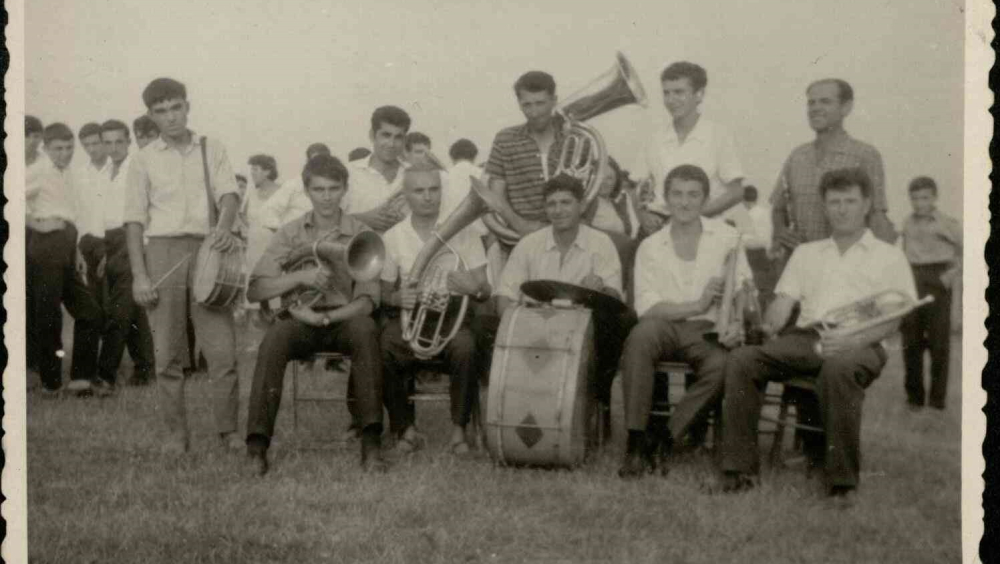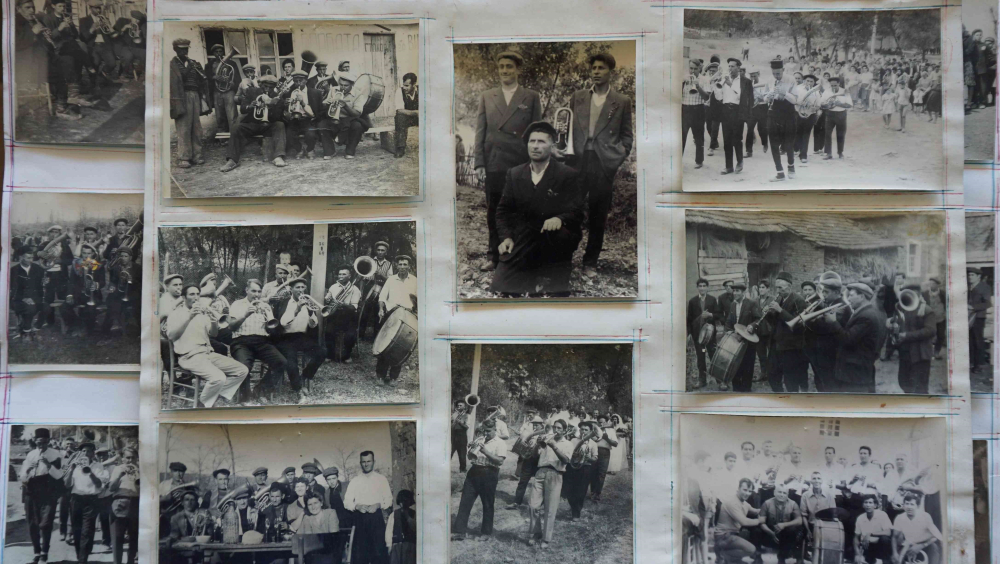The folk brass heritage digital project – saving the soul of Bulgaria’s Northwest
The bustling and distinct folk brass bands in many villages in Europe’s poorest region are dying out as their former members and the witnesses of their glory days are leave this world one by one. Their stories, art and heritage must be preserved for the EU’s future generations and time is relentlessly ticking away.
Gorno Peshtene and Virovsko – these words, which many Europeans will probably find hard to pronounce, are the names of villages in Bulgaria’s northwest, the country’s poorest region, which has been hit by massive depopulation and decay in recent decades. In the past, each of these places, and many more in the area, used to have its own brass band, a bustling group of talented musicians who brought to life every major event in the area. Now, most of them are a distant, melancholic memory from the past, dying out in dusty old photo albums hidden in the wooden chests of deserted houses. Folk brass bands, the beating heart of the community Most folk brass bands in the northwest of Bulgaria were set up in the 1930s and have their roots in military brass bands, which brought western instruments with them after Bulgaria’s Liberation in 1978. With time, their music got blended with the local folklore traditions and the first folk brass groups emerged in villages across the region. Initially, most brass band musicians were amateurs but as the popularity of their music grew, the bands evolved and started welcoming professional brass instrument players. Their vibrant melodies accompanied all major events, including births, weddings, birthdays, local festivals and gatherings, and even funerals. At one point, many villages organized Sunday concerts in their main squares, where people got together to have fun. On some occasions, the bands of neighboring villages met to match their skills, and their competition was a real spectacle for the audience. https://youtu.be/N57GjnHArNw Brass rituals and traditions There is an interesting tradition in the village of Virovsko, home to one of the most famous folk brass bands in the area. One of the former musicians, Vasil, interviews by the KartaNaVremeto website, says that every year on May 7th, when Virovsko celebrates its traditional family reunion day, musicians from the local brass bands used to go to the cemetery and play on the graves of the deceased. “At 7:00 am we would go to the cemetery park and people start asking us to play the favorite tracks of their deceased relatives on their graves,” Vasil says, explaining this was the way people would pay respect and demonstrate their love for their loved ones who have left this world. Time is ticking away Many of the musicians, who used to play the favorite songs of their deceased community members on their graves, are now gone. And, sadly, there is hardly one to pass their tradition on. Their knowledge, their skills, their passion lie buried, surviving mostly in the memories of the few remaining living witnesses of these vibrant times. Thanks to the efforts of researchers from the KartanaVremeto project, some of these memories have been written down and are available online. However, this project is a broader effort to describe and publish the vaster heritage of the Northwest, and the history and traditions of the folk brass music bands, an emblem of the region, is presented as one facet of its rich cultural life. Furthermore, the information, available through the work of experts such as Ms. Kalina Todorova, a researcher at the Regional Library in Vratsa, and the stories told by contemporaries, are hardly available in English, which makes it difficult for international audiences to use it. Following the example of other organizations worldwide, we would like to create a dedicated digital platform to preserve the Northwest’s folk brass heritage and share it with the world. Our efforts will be focused on preserving and digitalizing analogue audio and video archives. We would also like to find living members of the bands and record their memories, before it becomes too late. We hope to be able to create records of old photos, music instruments, music sheets, analogue tapes, and everything that may support and supplement existing data. By collecting and summarizing all available research and information, we aim to present it in an easy-to-use form online in English, and preserve it for the generations to come.
Apart from opening the door to Bulgarian Northwest’s folk brass culture to the EU audiences and enriching the music knowledge and appreciation of its traditions, the project also aims to educate and help a whole generation of Bulgarians living abroad about their roots and give them a feeling of appreciation and pride of their homeland. The economic downturn that came with the transition following the fall of the socialist system in Bulgaria ин 1989 forced many people to leave their homes in search of better living, including abroad. According to official data from 2021, in 10 years, there are nearly 2 million Bulgarians living abroad. In the Northwest, some 5% of the people have emigrated over the same period. In some villages, the share of emigrants reaches 50%. In almost every family in the northwest, there is at least one person working and living abroad, with most already integrated and settled in countries such as the UK, Greece, France, Spain or Italy. Many of their children have been born away from their homeland and know very little of its traditions and their roots. They deserve a chance to experience the lives of their ancestors and feel proud of their heritage.



